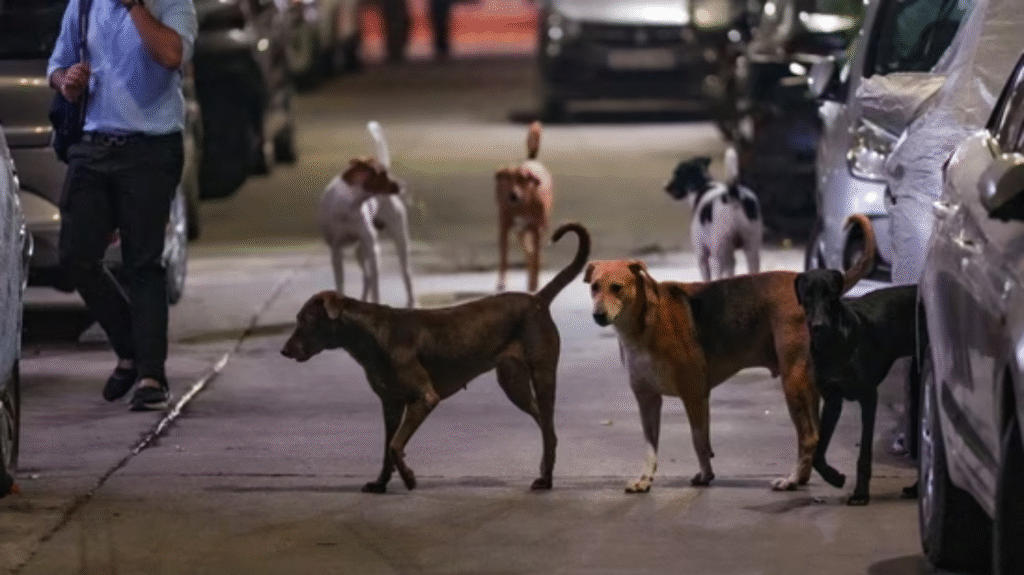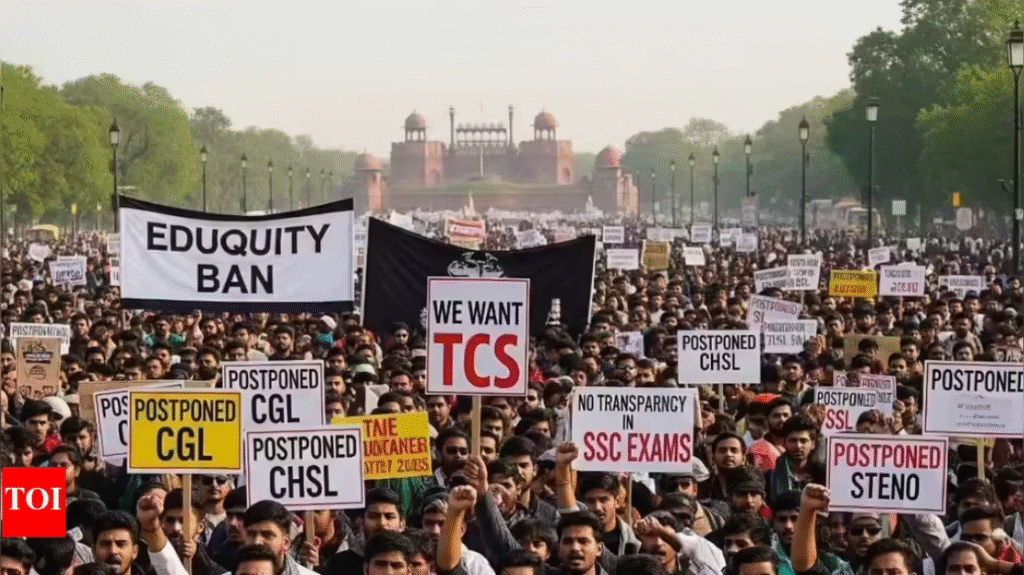New Delhi / August 2025 – In a sweeping judgment, the Supreme Court of India has directed civic authorities across Delhi-NCR—including New Delhi, Noida, Gurugram, and Ghaziabad—to remove all stray dogs from public spaces within eight weeks, mandating their relocation to monitored shelters. The verdict triggered widespread debate, touching on public health, animal welfare laws, and policy planning.
The Court’s Directive & Rationale
In a suo motu hearing prompted by alarming reports of stray dog attacks, the Supreme Court, led by Justices J.B. Pardiwala and R. Mahadevan, expressed urgent concern for children’s safety, citing nearly 2,000 daily dog bite cases and over 35,000 cases documented in early 2025.
Key mandates include:
- Capture and relocate stray dogs into shelters equipped with CCTV monitoring, sterilization, and vaccination measures—no dogs are to be released back into streets.
- Authorities given 8 weeks to execute the operation, with legal consequences for obstruction.
- A citywide animal helpline to track dog bite incidents with a 4-hour response mandate.
Backlash from Animal Rights & Citizens
The order drew immediate backlash from animal welfare advocates and celebrities. PETA called the move “chaotic” and warned it contradicts India’s Animal Birth Control (ABC) Rules—which emphasize sterilization and returning dogs to their territories post-treatment.
Critics warn of a ‘vacuum effect’: removal of dogs could disrupt ecological balance, invite more aggressive strays, and heighten zoonotic risks.
Prominent voices like Janhvi Kapoor, Varun Dhawan, and Vir Das labeled the ruling a “death warrant,” urging compassionate alternatives like feeding zones and sterilization campaigns.

Political Responses & Calls for Reassessment
Rahul Gandhi denounced the court’s order as inhumane and regressive, stating, “Blanket removals are cruel, shortsighted … these voiceless souls are not ‘problems’ to be erased.” He asserted that public safety and animal welfare can—and must—coexist.
TMC MP Saket Gokhale urged the Supreme Court to stay and review its decision, citing lack of infrastructure and risk of inhumane outcomes.
Legal and Policy Implications
| Core Focus | Key Considerations |
|---|---|
| Constitutional Authority | Court prioritizes public safety but must reconcile with ABC Rules and humane practices. |
| Implementation Practicality | Financial burden (~₹15,000 crore estimate) and lack of detailed logistics raise feasibility concerns. |
| Ecological & Public Health Risks | Uprooting urban dog populations may disrupt disease protection and community bonds. |
| Legislative-Rules Conflict | The ruling overrides existing Animal Birth Control Rules, opening institutional frictions. |
Concluding Thoughts
The Supreme Court’s order on stray dogs underscores the tension between urgent public safety needs and longstanding humane animal policies. With limited infrastructure and a tight deadline, the risk of unfair implementation looms large.
Going forward, a balanced framework—integrating sterilization, community engagement, and thoughtful infrastructure—may be key. Judicial patience, stakeholder consultation, and scientific backing must guide the path to a solution that protects both humanity and empathy.
To read more Indian Laws and news, visit Legal Guide India



